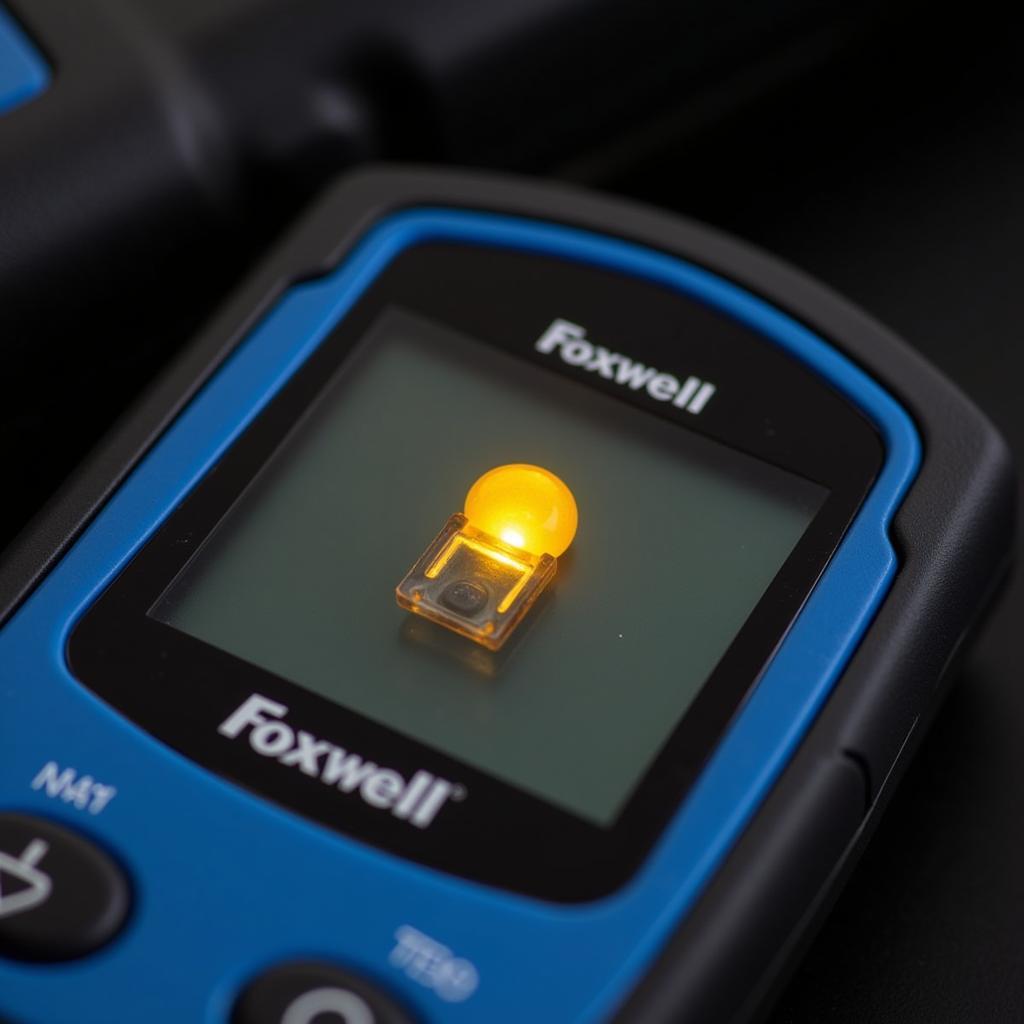When it comes to car maintenance, a reliable battery tester is an indispensable tool. Foxwell battery testers are renowned for their accuracy and user-friendly interface. However, one common question among users is: “What does the ‘res number’ on my Foxwell battery tester mean?” This article delves into the intricacies of the “res number” and its significance in evaluating battery health.
Decoding the “Res Number”: Internal Resistance Explained
The “res number” on your Foxwell battery tester refers to the internal resistance of your car battery. Measured in milliohms (mΩ), internal resistance indicates the opposition to the flow of current within the battery. A lower “res number” signifies lower internal resistance, which is a good sign. Conversely, a higher “res number” implies higher internal resistance, potentially indicating battery degradation.
what is res number on foxwell battery tester
Why is Internal Resistance Crucial for Battery Health?
Internal resistance provides crucial insights into the overall health and performance of your battery. Here’s why:
- Indicator of Battery Age and Condition: As a battery ages, its internal resistance naturally increases. This is due to the accumulation of sulfate crystals on the battery plates, hindering the flow of current.
- Predictor of Battery Performance: A high internal resistance can lead to voltage drops, especially during high-demand situations like starting your engine. This can result in sluggish starts or even prevent your car from starting altogether.
- Diagnostic Tool for Battery Issues: Sudden spikes in internal resistance can be indicative of internal battery problems such as sulfation, corrosion, or plate damage.
Interpreting Your Foxwell Battery Tester Results
Foxwell battery testers typically display the “res number” along with other essential battery parameters like voltage, CCA (Cold Cranking Amps), and overall battery health status.
Here’s a general guideline for interpreting the “res number”:
- Low “Res Number” (Below 5 mΩ): Indicates a healthy battery with low internal resistance.
- Moderate “Res Number” (5-10 mΩ): Suggests a battery in fair condition, but regular monitoring is recommended.
- High “Res Number” (Above 10 mΩ): Indicates a battery with high internal resistance. Consider further testing or potential replacement.
meaning of battery test results foxwell bt705
Expert Insight:
“Remember, these are just general guidelines,” says John Smith, a certified automotive electrician with over 20 years of experience. “The acceptable range for the ‘res number’ can vary depending on factors like battery type, age, and ambient temperature.”
Factors Affecting Internal Resistance
Several factors can influence the internal resistance of your car battery:
- Temperature: Cold temperatures can significantly increase internal resistance.
- Battery Age: As batteries age, their internal resistance naturally increases.
- Charge Level: A discharged battery will typically exhibit higher internal resistance compared to a fully charged one.
- Battery Type: Different battery types have different inherent internal resistance characteristics.
- Manufacturing Quality: High-quality batteries tend to have lower and more stable internal resistance over their lifespan.
Prolonging Battery Life: Tips and Tricks
While internal resistance naturally increases over time, here are some tips to help prolong your car battery’s lifespan:
- Keep Your Battery Clean: Regularly clean the battery terminals and cables to prevent corrosion, which can increase resistance.
- Maintain Proper Charge: Avoid deep discharges and ensure your battery is regularly charged using a compatible charger.
- Minimize Parasitic Draw: Identify and address any parasitic draws that may be draining your battery when the car is off.
Expert Insight:
“Preventive maintenance is key,” advises John. “Regularly checking your battery’s health using a reliable tester like the Foxwell can help you identify potential issues early on, saving you from unexpected breakdowns.”
Conclusion
Understanding the “res number” on your Foxwell battery tester empowers you to make informed decisions about your car battery’s health. By monitoring internal resistance, you can proactively address potential issues and ensure optimal battery performance. Remember, early detection is crucial for extending battery lifespan and avoiding inconvenient breakdowns.
If you’re unsure about interpreting your Foxwell battery tester results or have any concerns about your battery’s health, it’s always best to consult a qualified automotive electrician for professional diagnosis and advice.
For expert assistance and top-quality automotive diagnostic tools, contact ScanToolUS at +1 (641) 206-8880 or visit our office located at 1615 S Laramie Ave, Cicero, IL 60804, USA.


